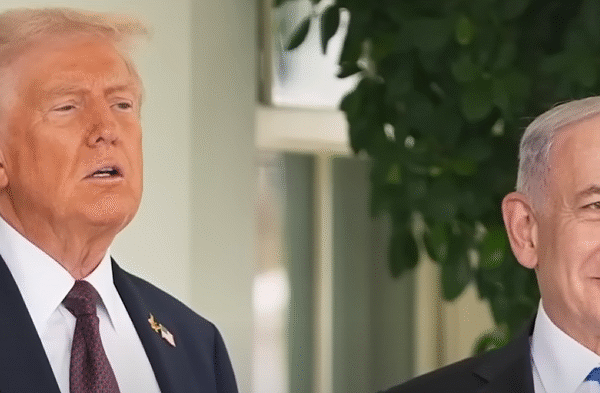France in Political Turmoil: Macron’s Fragile Coalition Unravels
France is once again at the center of a political maelstrom—a situation that should concern anyone who values strong, stable leadership. The resignation of France’s new prime minister, Sébastien Lecornu, fuels the fire of discontent that grips a nation already reeling from political mismanagement. As an ardent observer from across the Atlantic, it is hard not to draw parallels between France’s chaotic political machinery and the dangers of a government that refuses to stand up to its own internal contradictions.
Below, we present the detailed account as provided by prominent sources, alongside our uncompromising analysis of what this means for France and, indirectly, for the United States:
France’s new prime minister Sébastien Lecornu resigned Monday morning, less than a month after taking office and just a day after naming his government. The French presidency confirmed that President Emmanuel Macron accepted his resignation early Monday, leaving France without a functioning government and deepening the political uncertainty that has marked Macron’s second term. Lecornu’s departure makes him the fourth prime minister to step down in a year, a record that highlights how fragile Macron’s centrist coalition has become.
In France’s political system, the president serves as head of state and sets overall policy, while the prime minister acts as head of government, responsible for running ministries and working with parliament. Lecornu, a 38-year-old former defense minister and close Macron ally, was appointed to help stabilize Macron’s weakened coalition after months of tension in the National Assembly. His resignation reflects the growing difficulty Macron faces in maintaining control of a divided government and passing critical legislation.
Cabinet Backlash Sparked Immediate Tensions
Lecornu’s newly announced cabinet lineup drew strong criticism from across France’s political spectrum. His decision to appoint former finance minister Bruno Le Maire as defense minister drew opposition from both allies and critics who blamed Le Maire for France’s expanding deficit. Other key ministers, including Bruno Retailleau as interior minister and Gérald Darmanin as justice minister, kept their posts, signaling continuity rather than reform. Many lawmakers said the cabinet looked like a recycled version of previous governments and lacked the fresh direction Macron had promised.
Lawmakers Rebel as Macron’s Coalition Fractures
According to Reuters and Bloomberg, the Republican Party—whose votes Macron needs to pass the 2026 budget—reacted sharply to Lecornu’s cabinet choices. Party leaders said they were not properly consulted and accused Macron of ignoring the political realities of a fractured parliament. Some members began privately discussing a withdrawal of support from Macron’s centrist alliance. By early Monday morning, that internal rebellion made it nearly impossible for Lecornu to continue, forcing him to resign before his ministers could even take office.
Context Note for Readers: France’s Republican Party, known as Les Républicains, is a center-right political party with roots in past French presidents like Nicolas Sarkozy and Jacques Chirac. It shares a name with the U.S. Republican Party but is not connected.
Shockwaves Hit Financial Markets
The collapse of the French government sent ripples through financial markets. Bloomberg reported that the CAC 40 index of major French companies dropped nearly 2 percent, while the euro fell against the dollar. Investors expressed concern that the political chaos could delay passage of the national budget and possibly trigger early elections. Analysts said the speed of Lecornu’s resignation took markets by surprise, revealing how little confidence remains in Macron’s ability to hold his coalition together.
Macron Faces Mounting Pressure at Home and Abroad
Macron now faces a political dilemma that threatens both his domestic and international standing. With his approval rating hovering around 16 percent, he must decide whether to attempt another coalition government or dissolve parliament and call new elections. Opposition leaders wasted no time capitalizing on the turmoil. The far-right National Rally demanded that Macron resign, while left-wing leader Jean-Luc Mélenchon urged lawmakers to consider impeachment proceedings. Observers note that Macron’s struggles come at a sensitive time for Europe, where leaders are balancing economic challenges and security concerns. A weakened Macron could complicate France’s influence within the European Union and its role on the world stage.
A Government in Limbo
For now, Macron has asked Lecornu’s ministers to stay on in caretaker roles until a new prime minister is appointed. Some had not even completed their handover ceremonies before learning their positions were temporary. The abrupt resignation has left France without clear leadership at a time of economic strain and public frustration. With no stable majority in parliament and rising calls for accountability, Macron’s ability to govern effectively is under more pressure than ever. Analysts say the coming weeks will determine whether he can restore stability or if France is heading toward yet another round of political upheaval.
How France’s Crisis Impacts the United States
The resignation of France’s prime minister adds another layer of uncertainty to a global landscape that directly affects the United States. France is one of America’s closest allies in both NATO and the European Union, and political instability in Paris can slow coordination on defense, trade, and energy issues. Economically, France’s market volatility has already rippled through global indexes, influencing investor confidence and exchange rates. A prolonged period of instability in one of Europe’s largest economies could affect trade flows and potentially factor into the Federal Reserve’s view of global economic conditions.
Diplomatically, President Macron’s weakened standing limits his ability to take strong positions alongside Washington on international security, including ongoing defense support for Ukraine and negotiations over Middle East policy. With Macron now focused on surviving politically at home, American and European officials may find cooperation slower and less decisive. Analysts say France’s political crisis is part of a broader trend among Western democracies struggling with fragmentation and public distrust—an issue that carries implications far beyond Europe’s borders.
WE’D LOVE TO HEAR YOUR THOUGHTS! PLEASE COMMENT BELOW.
JIMMY
Find more articles like this at SteadfastAndLoyal.com
h/t: Steadfast and Loyal
Source: Red Right Updates!
Our Unfiltered Take: What Does This Mean for True Conservative Values?
As an Angry Republican accustomed to fighting for common sense and accountability in government, this latest political fiasco in France is nothing short of a cautionary tale. Macron’s inability to build a solid governing coalition mirrors issues that can arise when leaders fail to listen to the voices of principled conservatives who seek fiscal responsibility and robust national defense. The repeated cycle of appointing and dismissing prime ministers is an indicator that France’s centrist strategy is doomed to crumble under the weight of divided interests—a scenario that any American patriot should scrutinize.
There is a stark lesson here: A government that cannot rely on a coherent vision will always fall prey to its own internal dissension. The chaotic resignations, the apparent disregard for reliable, experienced governance, and the resulting market jitters are all signs that political elites worldwide are losing touch with the realities that matter to the everyday citizen. While Macron’s liberal coalition flounders, those of us who appreciate conservative principles know that strong leadership requires commitment, consistency, and a willingness to put country over party politics.
The International Implications: A Fractured Europe and Its Impact on America
When a major ally falls into internal turmoil, the ripple effects reach far beyond its borders. In this case, France’s instability threatens to slow down collective international efforts—a situation that could hamper coordinated defense policies and destabilize economic conditions globally. For United States policymakers and American investors, watching this debacle unfold serves as yet another reminder: political fragmentation anywhere can presage difficulties at home.
As conservatives, we must question why so many European leaders continue to dance around substantive issues, opting instead for short-term measures that only serve to deepen uncertainty. The breakdown of Macron’s coalition is not only a failure of leadership but also a signal that Europe’s long-standing tradition of stability is at risk. And as America has long been the bastion of liberty and effective governance, it is imperative that we remain vigilant and ready to support policies that foster transparency, accountability, and true conservative values.
Conclusion: Standing Firm Amidst the Chaos
France’s political crisis is a remnant of a broader trend—a warning shot to every government that dares ignore the voice of the people in favor of a nebulous centrist agenda. As we reflect on this upheaval, let it fuel the resolve of those who believe in principled governance, fiscal responsibility, and unwavering leadership. The fall of Macron’s government is a stark reminder that without a foundation built on common sense and accountability, even the most powerful can teeter into chaos.
Stay tuned for more incisive commentary as we continue to question, challenge, and ultimately champion the values that keep our nations strong and free.




Leave a Comment